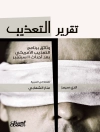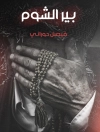In ‘The Long Vacation, ‘ Charlotte M. Yonge presents a richly woven narrative that explores the lives and adventures of young protagonists during their summer break. Set against the backdrop of the Victorian era, the novel employs a vivid, descriptive literary style that emphasizes the beauty of nature and the innocence of childhood. Themes of friendship, personal growth, and moral development permeate the story, reflecting Yonge’s commitment to didacticism in her writing while also providing an engaging, character-driven plot. This work exemplifies the 19th-century tradition of children’s literature, emphasizing the importance of education and character in a rapidly changing society. Charlotte M. Yonge, a prominent figure in Victorian literature, was known for her prolific output and her dedication to writing for young audiences. Growing up in a large, intellectual family, Yonge’s own experiences in a nurturing educational environment greatly influenced her writing. Her deep commitment to Christian values and the portrayal of strong moral lessons in her works are rooted in her upbringing and her background in the Anglican community, which provided her a lens through which to understand and articulate the complexities of human nature and youth. This novel is highly recommended for readers who appreciate classic children’s literature infused with moral lessons and vivid storytelling. ‘The Long Vacation’ not only captivates with its descriptions of summer adventures but also invites reflection on character development, making it a valuable addition to any literary collection.
关于作者
Charlotte Mary Yonge (1823–1901) was an English novelist esteemed for her considerable contribution to children’s literature and the genre of historical fiction during the Victorian era. Born in Otterbourne, Hampshire, Yonge was educated at home under the tutelage of her father, strongly influenced by the Oxford Movement and its emphasis on the Tractarian ideals within the Church of England. Her literary career spanned over seven decades, during which she published more than 160 works, comprising novels, short stories, and educational texts (Battiscombe, 1943; Romanes, 1884). ‘The Heir of Redclyffe’ (1853) is widely recognized as her most celebrated work, setting a precedent for the portrayal of moral and religious themes interwoven with domestic realism. Yonge’s novel ‘The Long Vacation’ (1895) reflects her mastery in exploring familial dynamics and the consequences of personal choices against the backdrop of English society. She infused her narratives with vivid characterization and evoked a sense of duty and social responsibility (Gavin, 2010; Mitchell, 2013). A co-founder of the Monthly Packet, a magazine aimed at British Anglican girls, Yonge deployed her literary talents to express values aligned with Christian faith and moral instruction, solidifying her reputation as a significant moralist and educator of the 19th century (Mare & Sturrock, 2011).












